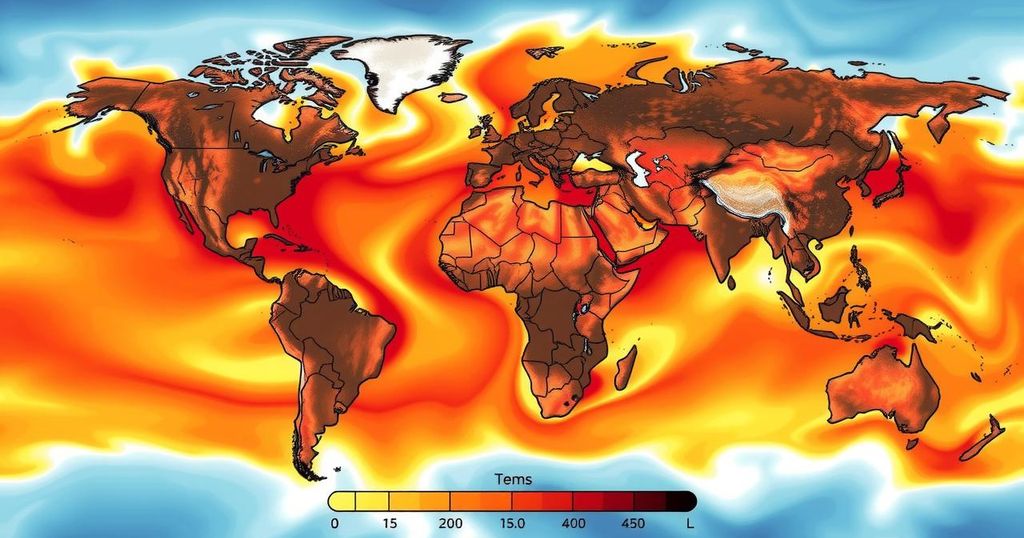According to NOAA’s NCEI, 2024 has been confirmed as the hottest year on record, with global temperatures rising significantly above historical averages. Antarctic sea ice has reached its second-lowest coverage, while ocean heat content peaked at record levels. Regional temperature spikes were evident worldwide. Reports from other scientific bodies also validate these findings, highlighting an urgent need for action against climate change.
The year 2024 has been officially recognized as the warmest in recorded history, as per NOAA’s National Centers for Environmental Information (NCEI). Notably, Antarctic sea ice coverage has reached its second-lowest extent on record. The annual climate report highlights an average global temperature 2.32 degrees Fahrenheit (1.29 degrees Celsius) above the 20th-century baseline, surpassing the previous record set in 2023 by 0.18 degrees Fahrenheit (0.10 degrees Celsius). Regional analyses indicate record-high temperatures across Africa, Europe, North America, Oceania, and South America, while Asia and the Arctic experienced their second-warmest years on record.
Additionally, separate assessments from organizations such as NASA and the UK Met Office corroborate NOAA’s findings, reinforcing 2024’s unprecedented temperature extremes. Furthermore, the report underscores concerning trends in Antarctic sea ice, which averaged 4.00 million square miles, marking it as the second lowest on record. The upper ocean heat content reached an all-time high in 2024, reflecting sustained increases in the amount of heat held within Earth’s oceans. Despite fluctuations in tropical cyclone activity, 2024 maintained an average storm count compared to previous years.
The focus on climate change and its effects has intensified in light of recent record-breaking temperatures. NOAA has long been a leading authority in climate research, providing critical monthly and annual reports on global climate trends. The discrepancies in sea ice extent are particularly troubling as they are indicative of broader environmental shifts influenced by global warming. With 90% of excess heat being absorbed by the ocean, trends in upper ocean heat content serve as crucial indicators of climate health. Reports like these reveal not only the enormity of rising temperatures but also highlight urgent discussions surrounding climate policy and environmental conservation efforts globally.
In conclusion, 2024 stands as a pivotal year in the documentation of climate change, representing the highest global temperatures and alarming shifts in ice coverage patterns. Organizations across the globe agree on these record temperatures, reinforcing the urgent call for enhanced climate action. The findings compel a comprehensive examination of anthropogenic contributions to ongoing climate disturbances, as the immediate future calls for a concerted global effort to mitigate the adverse impacts of climate change.
Original Source: www.noaa.gov






